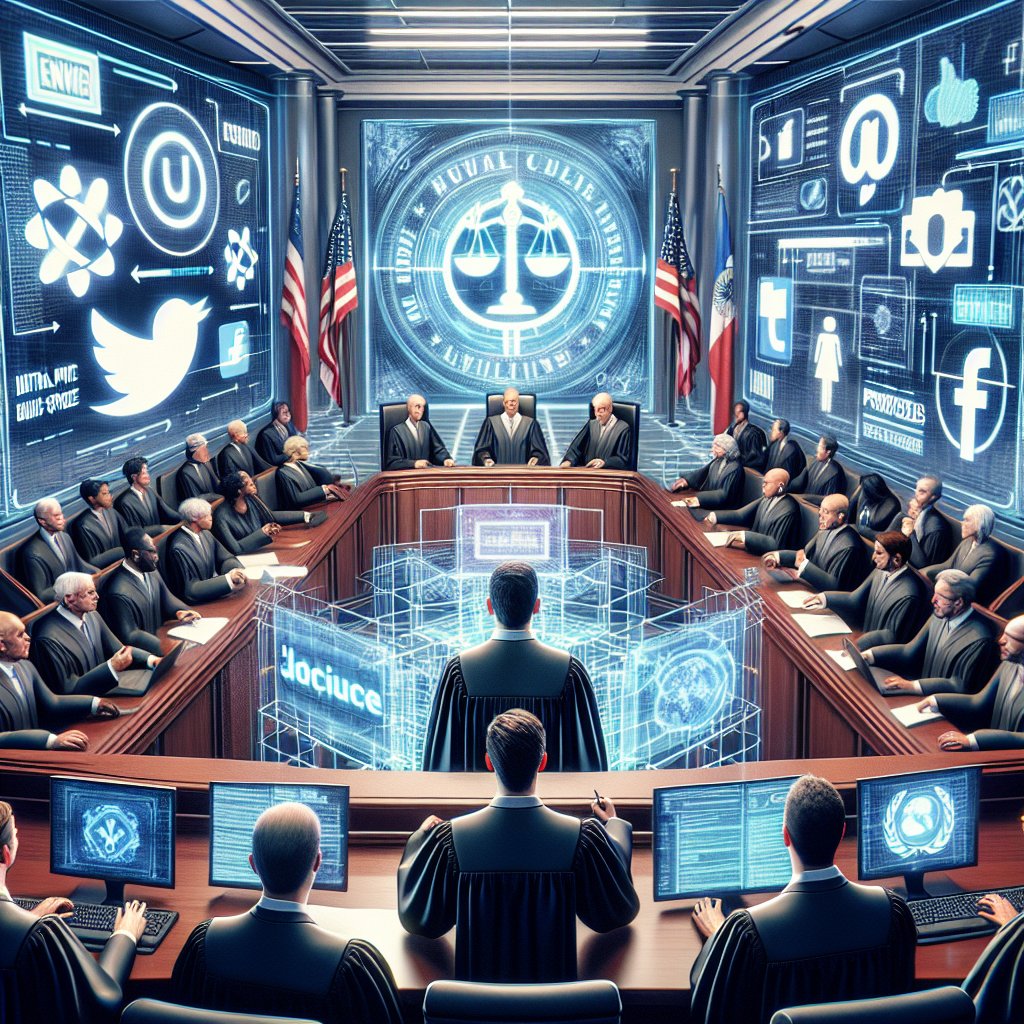Image created by AI
Supreme Court Scrutinizes Florida and Texas Laws on Social Media Content Moderation
The United States Supreme Court is currently undertaking a critical examination of recent legislative efforts by Republican-led states to address what they perceive as undue moderation and bias by social media giants against conservative viewpoints. Chief Justice John G. Roberts Jr. and other conservative justices have expressed concerns that suggest the laws from Florida and Texas may be precariously positioned on constitutional grounds.
During Monday's arguments, questions from the bench revealed that justices, regardless of ideological leanings, are contemplating the potential implications of such regulations on the rights enshrined within the First Amendment, which protects the freedom of speech from government interference.
The core of the dispute lies in the fact that both Florida and Texas have enacted laws purportedly to combat what they argue is censorship of conservative content by platforms like Facebook and YouTube. These legislated measures have led to tech industry titans challenging their validity, asserting that these laws violate the First Amendment by inappropriately involving the government in the regulation of the digital public square.
Under the current administration, President Joe Biden's allegiance has seemed to side more with the tech companies, reinforcing the argument that these state laws are unconstitutional. The contested legislation remains in limbo as the matter undergoes deliberation at the highest judicial level.
The dialogue at the Supreme Court does not show a unanimous front along partisan lines. Noteworthy is Chief Justice Roberts' pondering whether the government should engage in regulating what is regarded as the modern equivalent of the public square. Fellow conservative Justice Amy Coney Barrett's interrogation added to the discourse, considering if tech platforms should have similar latitudes as traditional newspapers when deciding what content to publish or suppress. The quandary pivots on whether algorithmic content moderation should be viewed as a form of speech.
Conversely, Justice Samuel Alito, also a conservative, appeared to offer a counterpoint by questioning the Biden administration's lawyer if content moderation is merely a synonym for censorship. However, the collective reservations expressed, including those from liberal Justice Elena Kagan, spotlight the unprecedented challenge the digital age poses to existing concepts of speech and expression.
The context of this judiciary scrutiny can be traced back to the actions of social media platforms in the aftermath of the January 6, 2021, US Capitol insurrection. High-profile bans, including that of former President Donald Trump, catalyzed state actions that aimed to ensure platforms could not summarily mute viewpoints.
The final decision by the Supreme Court, due by June's end, is poised to set a significant precedent. It will influence not only the extent to which states can regulate social media platforms but also shape the wider conversation about the balance between freedom of expression and the private rights of digital companies to moderate content on their services.
